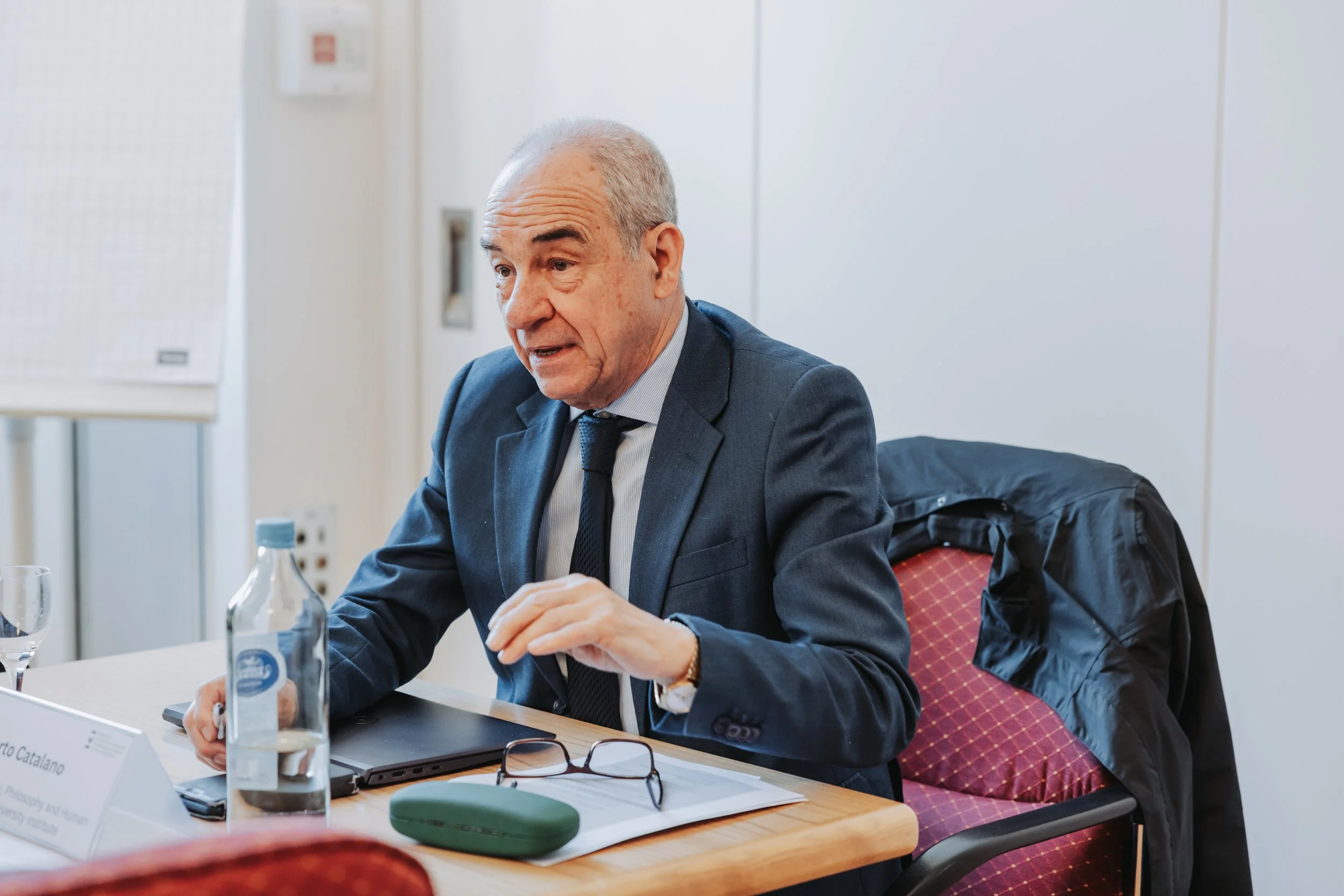Shared Roots, Common Future - Religion as a Bridge in a Divided World
Overview: Religion as a bridge builder between societies and cultures
In an increasingly pluralistic world, in which cultural and religious diversity has become a social reality, it is not uncommon for insecurities to grow in dealing with the supposedly foreign. In particular, religions and world views that are not deeply rooted in a society are often reduced to stereotypical images that promote separation rather than understanding. In such an atmosphere, fears thrive that are deliberately stirred up and politically exploited by destructive forces - with the aim of exacerbating social tensions, poisoning debates and undermining the foundations of social cohesion.
Religion is often not perceived as a resource for peace and understanding, but as a source of conflict and violence - be it in the historical retrospective of the Crusades or in the consideration of current crises such as the Hamas attack on Israel on October 7, 2023. In such cases, religion becomes a projection surface for political and ideological interests, a justification for the pursuit of power and exclusion. This development does not only affect the Middle East, where religion is deeply interwoven with state and society. Europe is also increasingly confronted with the question of how religion should be understood and shaped as a political and cultural factor.
It is often overlooked that religions - especially the three Abrahamic traditions of Judaism, Christianity and Islam - have far more in common than differences that divide them. All three are based on fundamental ethical values, the search for meaning and the pursuit of justice and humanity. This is precisely where the potential lies that has so far been underutilized: religions can build bridges, mediate between cultures, create identity and promote social resilience.
A sincere interreligious dialog based on listening, mutual respect and the common will to understand each other is therefore not only the order of the day, but also a forward-looking instrument for securing peace. Where religions are not played off against each other, but are led into dialog, space is created for shared visions - and for peaceful coexistence in a globally networked world. Because where people do not talk to each other, but merely judge each other, the breeding ground for division and mistrust grows.
Focus on interreligious dialog - thematic diversity in eight panels
The panel "The Role of Religion as a Bridge Builder in a Polarized World" kicked things off by highlighting the overarching social relevance of religion in times of growing tensions. In "Shared Roots and Divergences in the Abrahamic Religions", similarities and differences between Judaism, Christianity and Islam were reflected upon - always with a view to their shared potential for understanding.
Special attention was paid to the panel "Religion as a Political Factor in the Middle East", which highlighted the complex interweaving of religion, identity and power in the geopolitical context of the region. Other program items such as "Theory meets Practice: Practical Approaches to Interfaith Dialogue" and "Current Developments: The Impact of Technology on the Interreligious Dialogue" were dedicated to practical and technological approaches to interreligious exchange.
In "Religion as a Tool for Conflict Resolution and Sustainable Peace" and "Europe's Approach to Religion: Cross-Regional Learnings", the importance of religious actors for peace processes in a global and European context was discussed. The conference concluded with "Building Bridges for the Future", which looked at religion as a global collaborative force for the future.
A special highlight was the dinner speech by Ludger Hiepel, Commissioner against Anti-Semitism at the University of Münster. In his speech, he emphasized the importance of religious tolerance, social responsibility and a resolute stance against anti-Semitism and exclusion.
Dr. Sylvia Löhrmann, former Deputy Prime Minister of North Rhine-Westphalia and current Commissioner of the State of North Rhine-Westphalia for Combating Anti-Semitism, Jewish Life and Culture of Remembrance, was a prominent voice for interfaith dialogue and a value-based culture of remembrance.
The choice of venue underlined the symbolic power of the conference: Münster, the city of the Peace of Westphalia, stands for understanding through dialog like no other place in Europe. "Shared Roots - Common Future" impressively confirmed this claim and at the same time sent a strong signal for the need for new spaces for networked and cross-religious debates in a time of global upheaval.
Topics:
The role of religion as a bridge builder in a polarized world
Common roots and divergences of the Abrahamic religions
Religion as a Political Factor in the Middle East: Dynamics, Diversity and Political Implications
Theory meets practice: Practical approaches for interreligious dialog
Current developments: The impact of technology on interfaith dialog
Religion as an instrument of conflict resolution and sustainable peace
Europe's approach to religion: Cross-regional findings
Building bridges for the future: religion as a global unit of cooperation




























